This is a ranking of the best law schools in the U.S. The primary degree that is earned in law school in order to practice law is a J.D. (Juris Doctor), which is a professional graduate degree.

It's usually a three year degree program. But there are many other interesting and exciting degrees offered in law school. See each school's entry for its degree offerings.
There are various fields in which lawyers practice, such as international law, civil law, and criminal law, and practice as litigators or focus on appellate law, etc. The purpose of law school is to create graduates ready to practice in any of these domains.
After this list are Princeton University and Dartmouth College, included as notable schools. Though they don't have law schools, they both have had a large influence in the subject of law, influence that has been gained by their faculty, academics and alumni.
Students interested in law school should think about getting their bachelor's degree at one of these schools in an appropriate subject, taking advantage of all the school has to offer while still an undergraduate.
Or if one is interested in a more academic track for law (and not for practicing) these are good schools to consider for undergraduate or graduate degrees in subjects related to law. See each school's entries at the bottom of the list for more information.
The Best Law Schools
| Rank | School | Location |
|---|---|---|
| 1 | Harvard University | Cambridge, Massachusetts |
| 2 | Yale University | New Haven, Connecticut |
| 3 | College of William and Mary | Williamsburg, VA |
| 4 | Columbia University In The City Of New York | New York, NY |
| 5 | University of Chicago | Chicago, IL |
| 6 | University of Michigan, Ann Arbor | Ann Arbor, MI |
| 7 | New York University | New York, NY |
| 8 | University of California, Berkeley | Berkeley, CA |
| 9 | University of Virginia | Charlottesville, VA |
| 10 | Stanford University | Stanford, CA |
| 11 | University of Pennsylvania | Philadelphia, PA |
| 12 | Cornell University | Ithaca, NY |
| 13 | Georgetown University | Washington, DC |
| 14 | City University of New York | Queens, NY |
| 15 | The George Washington University | Washington, D.C. |
| 16 | The University of Texas at Austin | Austin, TX |
| 17 | Union College | Schenectady, NY |
| 18 | Amherst College | Amherst, MA |
This ranking was developed, in part, from data collected at AcademicInfluence.com, which has a proprietary method of determining influence in the field of Law from law school's publications of its academics and alumni. Successful Student then factored-in our own criteria, which were academic reputation and the variety of programs and degrees available. More on our ranking system here.
Harvard University
Cambridge, Massachusetts
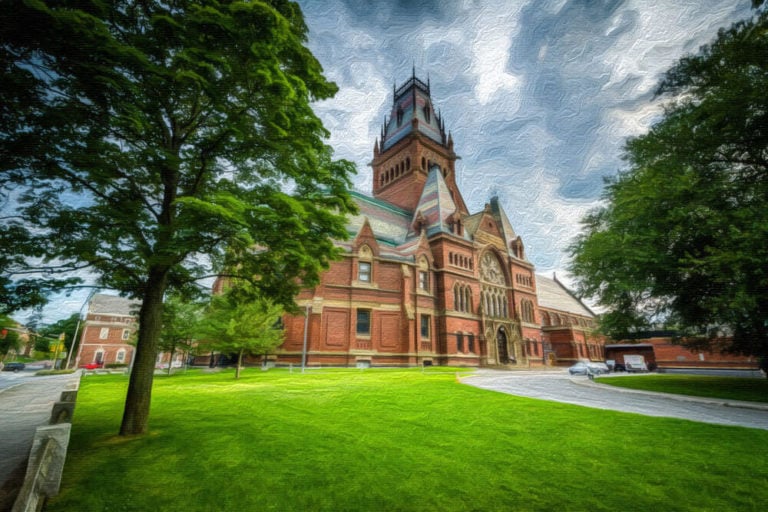
Founded in 1817, Harvard Law School is among the oldest law schools in the nation. Taught by a faculty of more than 250 professors, its curriculum incorporates traditional and emerging legal fields.
Its library houses more than 2 million volumes.
Students can take advantage of advanced coursework, fellowships and clinical work, as well as study abroad opportunities through exchange programs with law schools worldwide.
By combining courses such as law and government or law and social change students can tailor the degree to their interests and goals.
Harvard Law's alumni and faculty have included governors, senators and Supreme Court justices.
Harvard Law School also enables students to combine legal studies with advanced training in another field, such as a JD/MBA with Harvard Business School, JD/MPH with Harvard T.H. Chan School of Public Health, and JD/PhD with the Graduate School of Arts and Sciences, among others.
Accreditation: The New England Association of Schools and Colleges, Commission on Institutions of Higher Education provides accreditation to Harvard University.
Yale University
New Haven, Connecticut
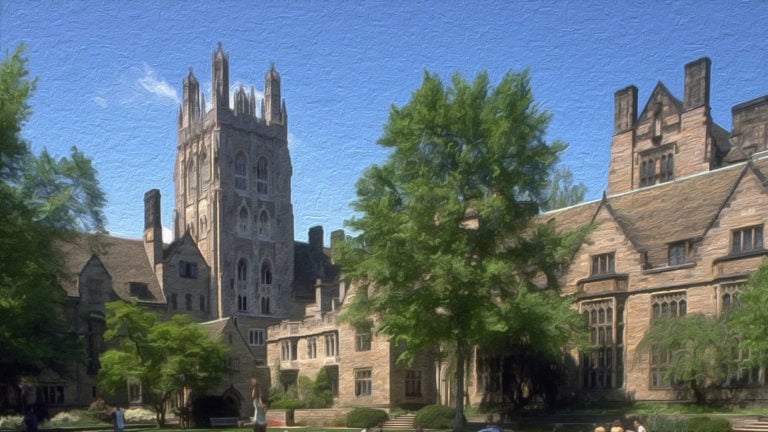
Among the most prestigious law schools in the nation, Yale Law School offers more than 180 courses each year with numerous opportunities for independent research and writing. Its world-renowned faculty present a curriculum that combines coursework, seminars and practical training through hands-on clinics.
Clinics, which span a diverse list of topics and casework, include appellate litigation, advanced sentencing, challenging mass incarceration, entrepreneurship and innovation, and more.
Yale Law School houses numerous centers and workshops, such as the Adbdallah S. Kamel Center for the Study of Islamic Law and Civilization and the Center for Global Legal Challenges, among others
Yale Law School encourages public service and offers fellowships for summer public interest work.
Yale Law School boasts more than 13,000 alumni who are leaders in business, law firm, corporations, public interest, and academics around the world.
Accreditation: The New England Association of Schools and Colleges, Commission on Institutions of Higher Education provides accreditation to Yale University.
College of William and Mary
Williamsburg, VA
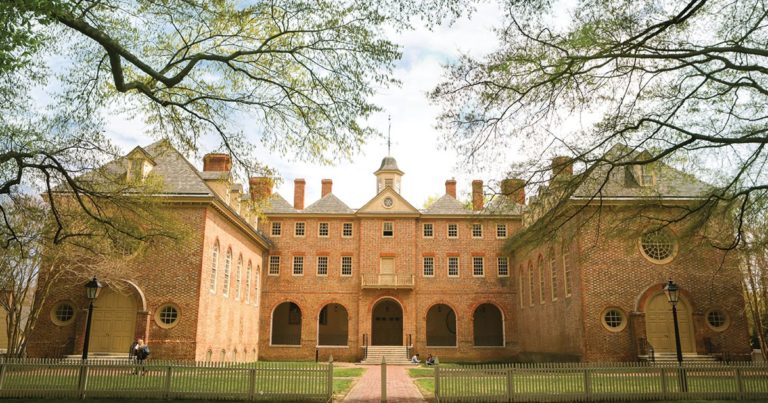
With a history of legal education dating back to 1779, The College of William and Mary was the first in the nation to offer professional legal education. The William and Mary Law School, one of five professional and graduate programs at the college, features a faculty of distinguished scholars and practitioners in fields such as legal ethics, constitutional law, post-conflict justice, criminal law, and environmental law, among others.
Students develop skills needed to practice law through the school's clinics and externship program. The William and Mary Law School also offers study abroad opportunities.
The school is home to several institutes and programs, including the Election Law Program, the Property Rights Project, the Human Security Law Center, and the Center for Legal and Court Technology, among others.
William and Mary Law School alumni include John Marshall, the nation's fourth chief justice, as well as more than 8,000 lawyers practicing law around the world.
Accreditation: The Southern Association of Colleges and Schools Commission on Colleges provides accreditation to the College of William and Mary.
Columbia University In The City Of New York
New York, NY
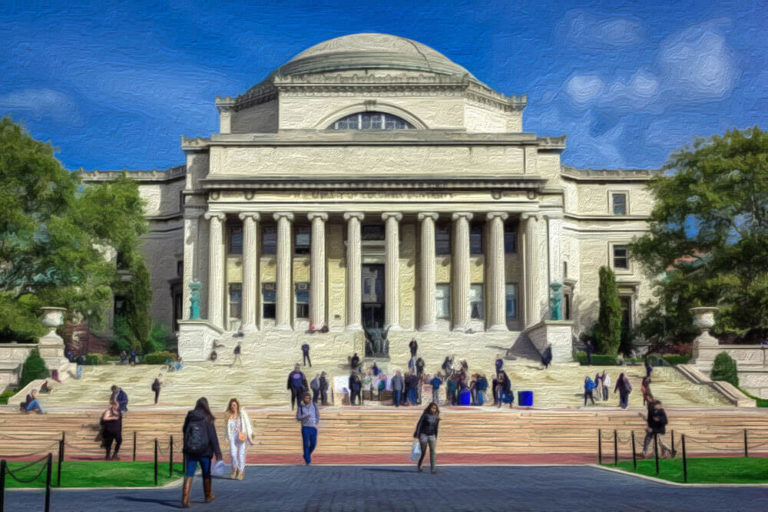
Columbia Law School, established in 1858, provides students with a rigorous, global and interdisciplinary education in legal topics such as social justice, international law, corporations, and more. Through externships, simulations, clinics and policy labs, students develop practical skills.
The independent Columbia Law Review, founded in 1901, is a widely distributed and often-cited law review.
The Law School's clinical program covers a range of legal issues such as social justice, environmental law, and sexuality and gender law, among others. Students receive cutting-edge training in community advocacy, impact litigation and legislative work. Established in the 1980s, the Law School's Human Rights Internship Program enables students to intern with human rights organizations throughout the world.
Accreditation: The Middle States Commission on Higher Education provides accreditation to Columbia University.
University of Chicago
Chicago, IL
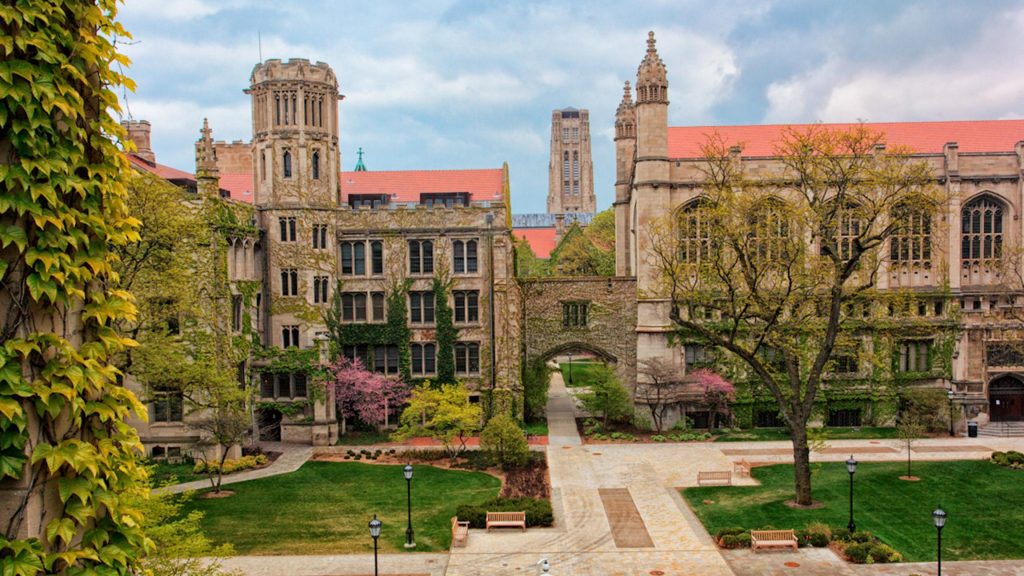
University of Chicago Law School provides students with a rigorous and interdisciplinary education that combines the study of law with the natural sciences, the social sciences and the humanities. By exposing students to contrasting views, faculty enable students to choose their own paths.
With an emphasis on broad and basic knowledge of law and an understanding of how the legal system functions, UChicago Law prepares students for a range of careers such as private of public law practice, government service, legal education, entrepreneurship, and more.
UChicago Law is home to clinical programs that operate through seven units as separate "law firms," including the Innovation Clinic, the Institute for Justice Clinic on Entrepreneurship, and the Edwin F. Mandel Legal Aid Clinic.
Accreditation: The Higher Learning provides accreditation to University of Chicago.
University of Michigan, Ann Arbor
Ann Arbor, MI
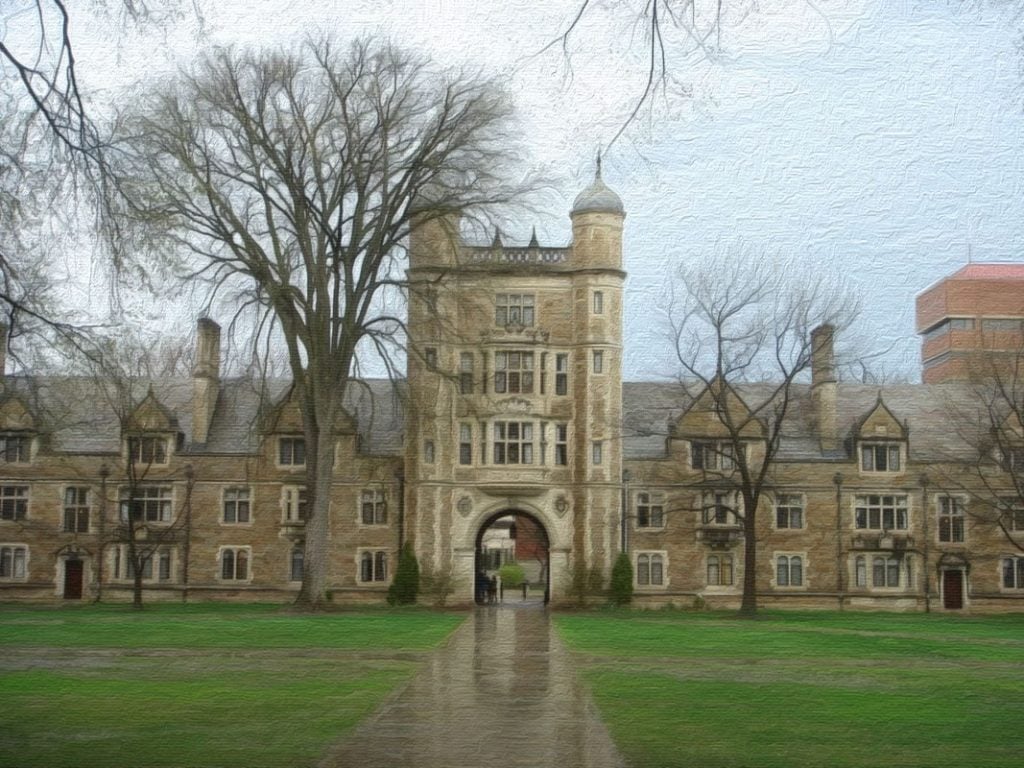
Founded in 1859, the University of Michigan Law School is among the oldest law schools in the nation. The Law School provides students with an interdisciplinary approach to the law.
In addition to Juris Doctor and Master of Laws programs, the Law School also allows students to choose from 13 Dual Degree Programs or design a dual degree that meets their personal and career goals.
The University of Michigan Law School provides students with study abroad, externship and independent study opportunities. Through clinics, students gain practical experience by meeting with real clients with real legal needs. The school offers 16 clinics, such as the Human Trafficking Clinic, the Child Advocacy Law clinic, and the non-DNA Innocence Clinic.
Accreditation: The Higher Learning Commission provides accreditation to the University of Michigan.
New York University
New York, NY
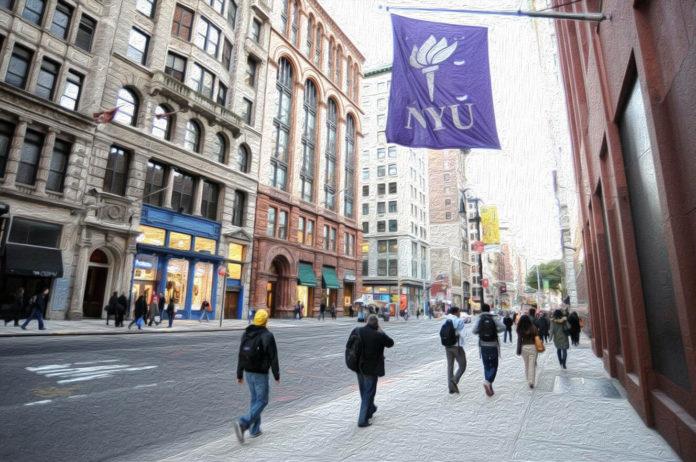
Founded in 1835, NYU School of Law features an interdisciplinary, rigorous curriculum with more than 300 courses offered annually. Students can choose from 16 areas of study taught by faculty who are leaders in their field.
The curriculum incorporates experiential training, including real-world experience gained through the first-year Lawyering Program, upper-level simulation courses, and clinics.
The School is home to more than 30 clinics and institutes, including the Center for Cybersecurity, the Center on Civil Justice, the Engelberg Center on Innovation Law and Policy, and the Center for Diversity, Inclusion, and Belonging, among others.
Students can tailor the LLM degrees with eight specializations, such as focusing on Corporate & Commercial; Labor & Employment; Taxation; and Immigration, and more.
Accreditation: The Middle States Commission on Higher Education provides accreditation to New York University.
University of California, Berkeley
Berkeley, CA

Berkeley Law, one of 14 colleges and schools at the University of California - Berkeley, has a long history of providing first-class training in legal doctrine, theory and practice; the opportunity for client service; and exposure to the social, political and economic forces that shape the law.
With instruction and mentorship from world-class faculty and practitioner experts from nearby San Francisco and Silicon Valley, Berkeley Law's students develop skills in legal research, problem solving, communication, and legal analysis and reasoning.
Its demanding and selective programs incorporate experiential learning through field placement, practicum, and clinics.
Berkeley Law houses nearly two dozen centers, institutes and clinics, including the Human Rights Center, the Death Penalty Clinic, the Berkeley Center for Law & Technology, and the East Bay Community Law Center, among others.
The Western Association of Schools & Colleges provides accreditation to the University of California - Berkeley.
University of Virginia
Charlottesville, VA
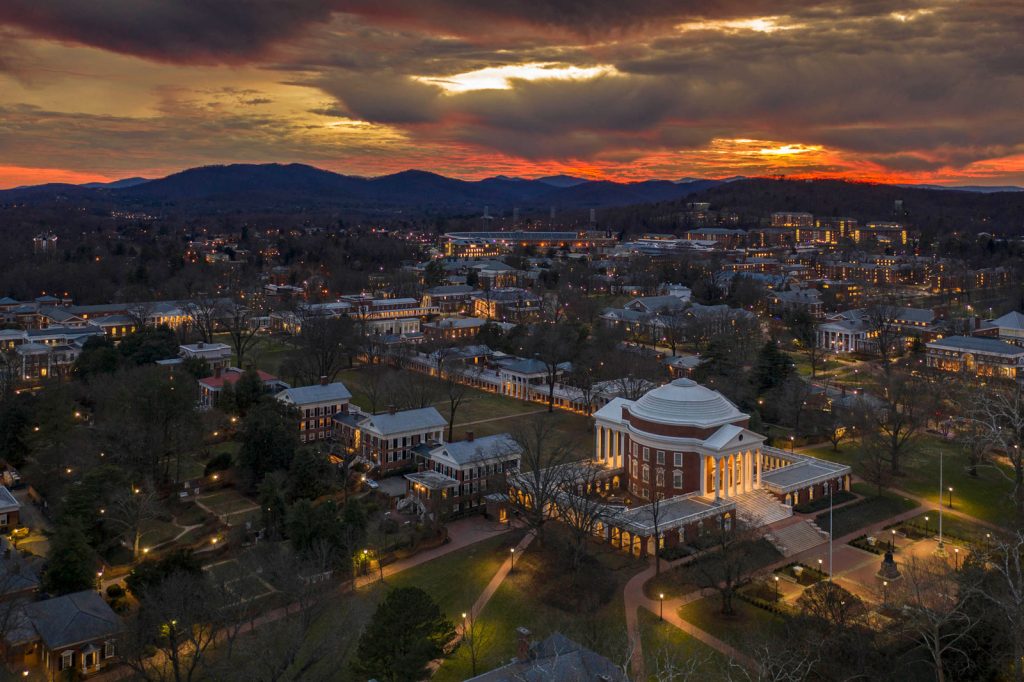
Founded in 1819 by Thomas Jefferson, University of Virginia School of Law is second-oldest continuously operating law school in the nation. The School offers more than 250 courses and seminars annually, including advanced theory courses and hands-on clinics.
Students also have access to externships, independent and directed research projects, study abroad opportunities and dual degree programs.
The school houses 19 clinics, which help students hone public speaking, trial advocacy and problem-solving skills. Clinics focus on areas such as Supreme Court litigation, wrongful convictions, civil rights, employment law, First Amendment, immigration law, and more.
Accreditation: The Commission on Colleges of the Southern Association of Colleges and Schools provides accreditation to the University of Virginia.
Stanford University
Stanford, CA
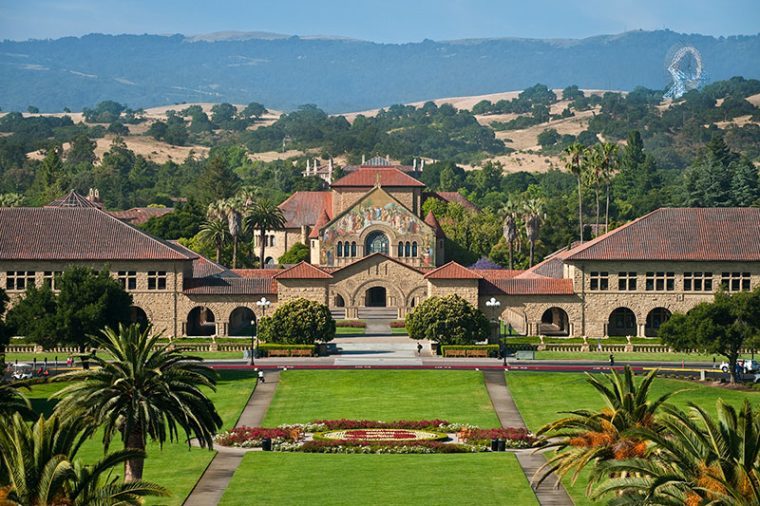
Stanford University's history of law curriculum dates to 1893. Stanford Law School is known for its student-centric education, which is customizable to each student and allows students to create a joint degree or invent a new course.
Through small classes, seminars and team-driven clinics, students develop practice-ready skills.
Stanford Law School offers 11 immersive legal clinics and more than 20 law and policy practicums.
Stanford Law's interdisciplinary programs enable students to explore the ways law intersects with other fields. Students develop leadership and team-building skills as well as a commitment to advancing solutions through law.
Accreditation: The Accrediting Commission for Senior Colleges and Universities of the Western Association of Schools and Colleges provides accreditation to Stanford University.
University of Pennsylvania
Philadelphia, PA
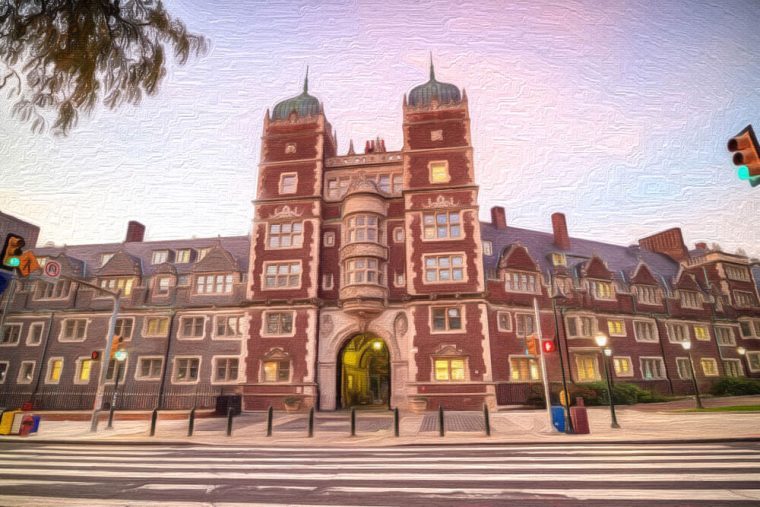
Penn Law has been at the forefront of legal education in the U.S. since it began offering its first full-time law program in 1850. Penn Law provides a cross-disciplinary approach to legal education. Students receive training in law as well as related fields such as health, communications, business, social work, and education.
Taught by faculty who are leaders in law, its programs provide students with legal practice skills and prepare graduates for careers that engage major issues in our society.
Penn Law is home to nearly a dozen centers and institutes, such as the Center for Asian Law, the Institute of Law & Philosophy, and the Center for Ethics & the Rule of Law.
Students also develop practical legal skills through the several clinics, including the Civil Practice Clinic, the Mediation Clinic, and the Supreme Court Clinic; as well as externships.
The Middle States Commission on Higher Education provides accreditation to the University of Pennsylvania.
Cornell University
Ithaca, NY
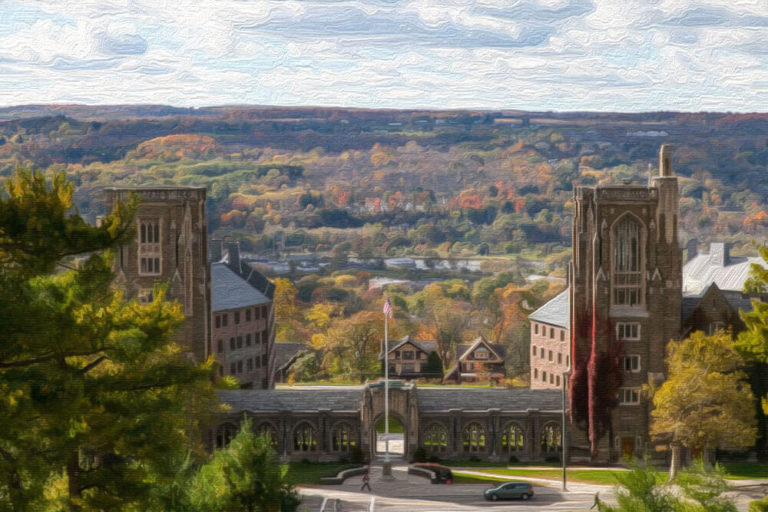
Founded in 1887, Cornell Law School combines cutting-edge scholarship with inspired teaching. Cornell Law School's approach to legal education encourages interdisciplinary study and collaboration with a global emphasis.
Its faculty emphasizes the principle that law must be studied within the context of its humanity. Cornell Law's curriculum integrates clinical courses, externships, seminars and problem courses.
Cornell Law is home to more than a dozen centers and programs, including the Berger International Legal Studies Program, Clarke Business Law Institute, and the Cornell Center for Women and Justice.
Accreditation: The Middle States Commission on Higher Education provides accreditation to Cornell University.
Georgetown University
Washington, DC
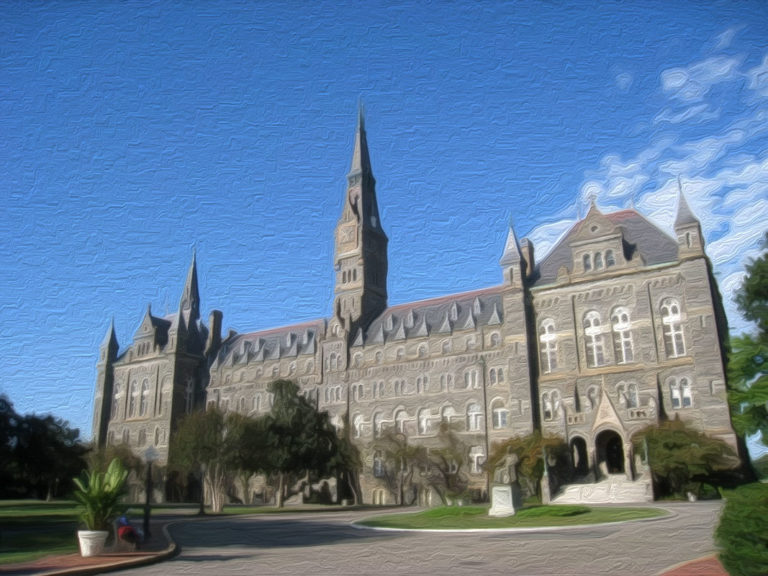
Founded in 1870, Georgetown Law's top-rated experiential learning programs allow students to apply classroom theory to real-life legal challenges. Students immerse themselves in corporate, civil and criminal law, and public policy.
Georgetown Law's world-class faculty combines scholarship with deep-thinking. Students gain practical experience and apply the school's Jesuit tradition of social justice and service to others through in-house legal simulations, externships, project-based practicum courses and 19 legal clinics.
Georgetown Law is home to joint degree and advanced degree programs as well as world-renowned centers and institutes.
Its programs offer a diverse curriculum and allow students to specialize in tax law, international and trade law, health law, national security law and environmental law.
Accreditation: The Middle States Commission on Higher Education provides accreditation to Georgetown University.
City University of New York
Queens, NY

Founded in 1983, the CUNY School of Law trains lawyers to serve the disempowered and underprivileged and to make a difference in their communities. With an emphasis on skills, ethics and legal theory, the School's rigorous curriculum integrates lawyering knowledge and traditional doctrinal study.
Students also gain real-life experience through clinical practice, including representing clients at Main Street Legal Services Inc.
Accreditation: The Middle States Commission on Higher Education provides accreditation to CUNY School of Law.
The George Washington University
Washington, D.C.
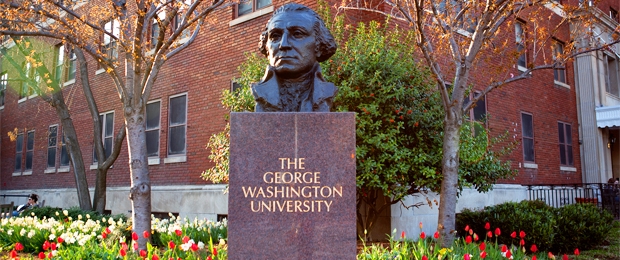
Founded in 1865, The George Washington University Law School is among the oldest law schools in the region and a charter member of the Association of American Law Schools.
It offers a collaborative, distinctive legal education with flexible options, such as allowing students to switch easily between full-time and part-time status.
Students can tailor their degree with more than 250 elective courses, including live-client clinics.
GW Law also offers several research centers and exchange initiatives, study abroad programs, and a field placement program.
GW Law's Public Interest and Pro Bono Program stresses the value of service and provides students with opportunities to enhance their professional development.
Accreditation: The Middle States Commission on Higher Education provides accreditation to George Washington University.
The University of Texas at Austin
Austin, TX
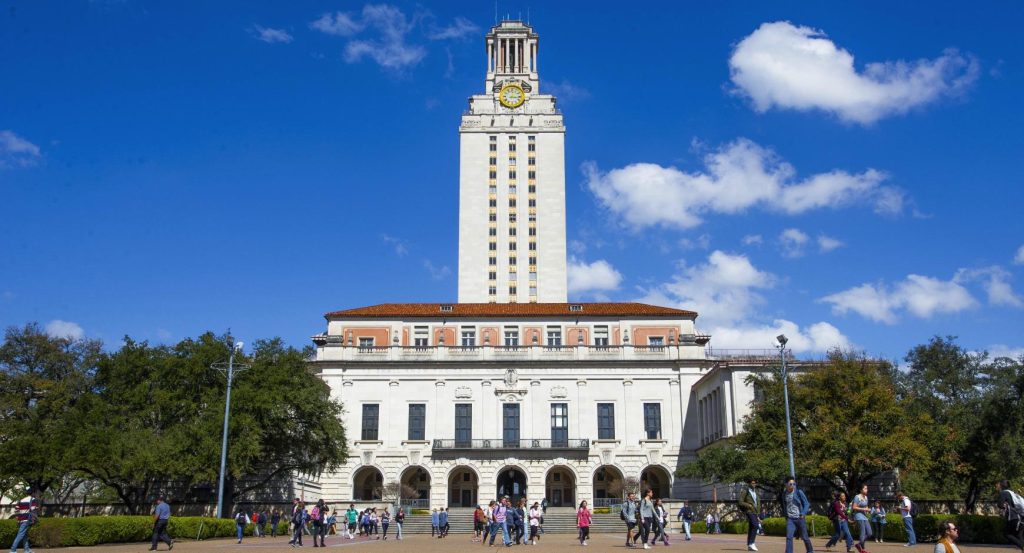
The University of Texas at Austin's School of Law, also known as Texas Law, prepares students to become world-changing professionals and rigorous analytical thinkers. Its distinguished faculty help students develop advocacy and legal writing skills.
Through the school's 16 clinics, students gain practical skills by representing real clients in real cases. Texas Law's Richard and Ginni Mithoff Pro Bono Program promotes an ethic of service and gives students pro bono opportunities.
Accreditation: The Southern Association of Colleges and Schools Commission on Colleges provides accreditation to the University of Texas at Austin.
Union College
Schenectady, NY

Union College features small classes, flexible curriculum options and a dedicated faculty. Students can double major, study across departments, create their own major or combine majors - all to meet their personal and professional goals.
Students gain a solid foundation for a career in law and hone their written and oral communication skills as well as analytic, research and decision-making skills. Students can complete internships, join the Pre-Law Club or take advantage of study abroad opportunities.
Union College offers a highly competitive 3+3 accelerated law program with Albany Law School. Students complete a full Union B.A. or B.S. degree in three years and then progress to Albany Law School. Students can earn undergraduate credit through law-related internships and take part in Albany Law School activities.
Accreditation: The Southern Association of Colleges and Schools Commission on Colleges provides accreditation to Union College.
Amherst College
Amherst, MA
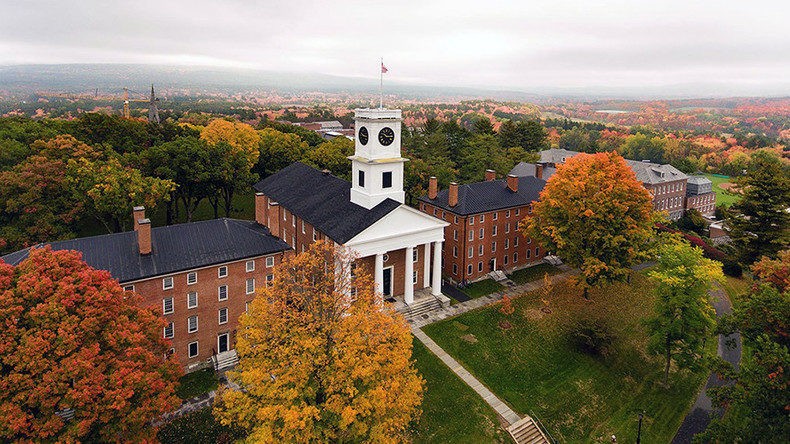
Founded in 1821, Amherst College offers 40 majors in the arts, natural sciences, social sciences and the humanities. The college offers an open curriculum, which means there are no core courses and students choose the courses that matter to them.
With courses in legal theory, interpretive practices, legal institutions, and historical and cross-cultural perspectives, Amherst College provides an interdisciplinary approach to the contextualization, study and theorizing of law. Students study the law in the context of a liberal arts education.
The curriculum uses legal materials to explore argument and proof, problems of justice and injustice, contests over social means, and tensions between authority and community. The programs prepare graduates for careers in legal studies, the public or private sector, social service, or teaching, as well as further study of political science, philosophy or history.
Amherst College also offers study abroad opportunities.
The New England Commission of Higher Education provides accreditation to Amherst College.
General Law School Admission Requirements
Students will need to have a bachelor's degree as a prerequisite for admission into law school. Most law schools require taking the LSAT (Law School Admission Test) for law school admission, though certain law schools now accept the GRE (Graduate Records Examinations) in lieu of the LSAT.
Letters of Recommendation, Transcripts, the Application and its fee, and a Personal Statement may be required. Check with each school for specific admission requirements. Law student applicants should take advantage of the Credential Assembly Service (CAS for short).
This is part of the Law School Admission Counsel (LSAC).It's a repository of all of your admission documents, which are housed by the CAS after you've submitted them to the LSAC. This makes keeping track of your admissions to law schools organized and easier to manage.
Law Schools that Accept the GRE for Admission
For law schools that accept either the LSAT or GRE, a strategy could be to take both, and see which is higher and submit that score. If you've taken both the GRE and LSAT, some law schools will then only accept the LSAT.
So you're locked in on that score with that law school for the admission process. An example is George Mason University's Antonin Scalia Law School.
List of law schools that accept the GRE:
- American University Washington College of Law
- Boston University School of Law
- Brigham Young University
- Brooklyn Law School
- Chicago-Kent College of Law
- Columbia Law School
- Cornell Law School
- Florida International University College of Law
- Florida State University College of Law
- George Mason University Antonin Scalia Law School (GRE or LSAT, If both have been taken then only the LSAT will be accepted)
- Georgetown University Law Center
- Harvard Law School
- John Marshall Law School
- Massachusetts School of Law at Andover
- New York University School of Law
- Northwestern University School of Law
- Pace University Elisabeth Haub School of Law
- Pennsylvania State University
- Pepperdine School of Law (accepts GRE, or LSAT, or both)
- St. John's University School of Law
- Suffolk University Law School
- Texas A&M University School of Law
- University at Buffalo School of Law
- University of Arizona James E. Rogers College of Law
- University of California, Davis, School of Law
- University of California, Irvine School of Law
- University of California, Los Angeles School of Law
- University of Chicago Law School
- University of Dayton School of Law
- University of Hawaii at Manoa William S. Richardson School of Law
- University of New Hampshire School of Law
- University of Notre Dame Law School
- University of Pennsylvania Law School
- University of Southern California
- University of South Carolina School of Law
- University of Texas at Austin School of Law
- University of Virginia School of Law
- Wake Forest University School of Law
- Washington University School of Law
- Yeshiva University, Cardozo School of Law
Salary and Growth Information
According to the Bureau of Labor Statistics, Lawyers earned a median salary of $145,760. The growth rate is 5%, on par with the average for all occupations. An additional 44,100 lawyers are expected between now and 2034.
More resources:
